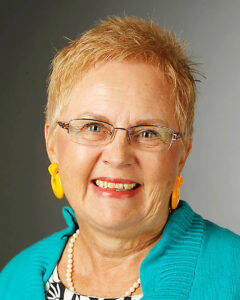Back in the early ’70s the “born again” movement was coming on strong and I was teaching in a Bible Belt school district. Before class one day I suddenly found myself in earnest conversation with a fellow teacher who felt the need to “witness” to me about being born again. She was a sweet lady and clearly following her heart, but I finally had to tell her, “Barbara, when you are born Minnesota, Norwegian Lutheran you don’t need to be born again. Once is more than enough.”
I found myself thinking of that early religious training when I heard someone on the news quoting Dietrich Bonhoeffer. I was surprised at this reference to a 20th century Lutheran theologian. I assumed most people had never heard of Bonhoeffer unless they were seminary trained or, like me back in 1961, had been in Pastor Nervig’s Confirmation classes. He spent an entire hour telling us of Bonhoeffer, how he was executed by the Nazis because he defied them, and what it means to reject what Bonhoeffer called “cheap grace.”
In the odd convergence of seemingly random events, the same day I found myself thinking of Bonhoeffer, my husband, a Vietnam veteran, was asked to take part in our park’s Veterans Day observance on Friday. In that moment, all the pieces started falling into place: Dietrich Bonhoeffer, Pastor Nervig, veterans and real grace.
A quick study of the complex person who was Dietrich Bonhoeffer shows a man who had an aristocratic upbringing, was a skilled pianist and shocked his family when he stated his intention to become a minister. When Hitler came to power Bonhoeffer was so offended by the anti-Semitic language and actions of the Nazis that he became a committed revolutionary. He helped Jews escape Nazi Germany and promoted plans to overthrow Hitler.
Bonhoeffer was able to get to America but then returned to Germany, saying, “… I will have no right to participate in the reconstruction of Christian life in Germany after the war if I do not share the trials of this time with my people.” In April of 1943 he was arrested and imprisoned by the Nazis. On April 9, 1945, he was hanged by Hitler’s thugs. One month later Germany surrendered, and Hitler committed suicide, too abject a coward to face the justice of this world.
One of Bonhoeffer’s persistent themes is the idea of “cheap grace.” By that term he meant the espousal of Christian principles without changing the way you live. Saying you are a Christian but not acting like one is cheap grace. Accepting the presence of Nazi sympathizers in your midst because you like their swagger is cheap grace. Believing anti-Semitic tropes, overlooking bigotry and laughing at ugly jokes are all cheap grace. Saying you accept grace is one thing; acting like you do is another. In matters of faith, it is a good idea to put your money where your mouth is.
Our veterans have shown us what it is like to live in real grace — not the cheap kind. They have given themselves, all of themselves, to a greater good. They have willingly taken on the burden of service, the full weight of sacrifice, the back-breaking job of obedience. They did all this knowing what it cost them. Whether our veterans were Christians, Jews, Muslims, Hindi, Buddhists or even atheists they all understood the martyrdom of a person like Dietrich Bonhoeffer. They all knew what it was like to leave a place of safety because a monster had built up a kingdom of evil and was devouring people in a surfeit of fanatical hatred.
Our veterans knew what it was like to say, “Enough — no farther.” Theirs is not cheap grace. It cost them everything. They are one reason I keep the faith.
Louise Butler is a retired educator and published author who lives in Edinburg. She writes for The Monitor’s Board of Contributors.



